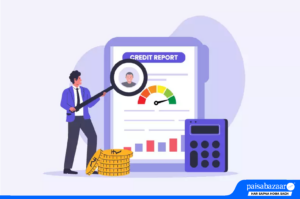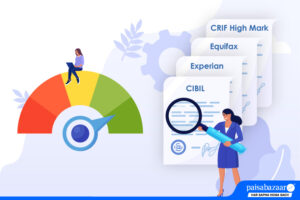There can be various reasons for your low credit score, such as poor repayment track record, having a high credit utilisation ratio regularly, multiple credit enquiries in a short span, errors in your credit report, etc. It may not take too long for your credit score to fall, but rebuilding your credit score can be a tedious process. However, if you abide by the below-discussed measures, it will help you start improving your credit score in the next few months and secure your financial future. Let’s discuss ways to improve your credit profile and understand how long it can take to improve your credit score.
Key Measures To Improve Credit Score
Follow the measures mentioned below to enhance your credit score and increase the chances of loan or credit card approvals:
1. Improving Repayment History
Even if you miss a single payment of credit card or loan EMIs, your credit history gets impacted negatively and resulting in a fall in your credit score. Thus, an improved payment history plays the most vital role in building your credit score.
Regular and on-time payments of credit card EMIs and loans help improve your payment history and assist in increasing your credit score.
2. Lowering Credit Utilisation Ratio
A high Credit Utilisation Ratio (CUR) shows you are highly dependent on credit and can find it difficult to repay dues in case of a financial crunch. It makes you a risky customer and can impact your creditworthiness negatively.
CUR is an important factor that influences your credit score. To maintain a good credit utilisation ratio, it is advised to use less than 30% of the total available credit limit.
Even though using a credit limit in the range of 30-40% may not have a severe impact on your credit score, maxing out your card or having a high CUR regularly has the potential to impact your credit score negatively.
3. Avoiding Closing the Oldest Active Account
Most people have this misconception that closing less functional or old accounts may help in increasing their credit score, which is incorrect.
A longer age of credit history allows lenders to assess your credit behaviour for a longer term. So, it is always recommended not to close your oldest credit card, as it can negatively impact your credit score.
The older the account, the more data is available with the credit bureau to assess your creditworthiness. A disciplined credit behaviour over the long term without defaults helps build trust with the lender and thus helps in having a high credit score.
4. Refraining from Applying for Multiple Credits in a Short Duration
Applying for multiple credit products in a short span depicts you as a credit-hungry person, and your desperation for credit may not be taken positively by the credit bureau. This credit-hungry behaviour is immediately tracked by credit bureaus, which can lead to a fall in the credit score. Therefore, avoid applying for multiple credit products at once.
Even banks and NBFCs may refrain from giving approvals to such applicants, as they find a person at high risk who may be unable to pay the loan amount on time and incur losses for the lender.
Also Know: How can I check my credit score for free without affecting it
5. Maintaining a Good Mix of Credit
A mix of credit can be maintained by availing secured loans and unsecured credit judiciously. Secured loans, such as home loans or car loans, are collateral-backed, whereas unsecured credit, such as personal loans or credit cards, is riskier.
A borrower who has handled multiple credit products diligently over a long period builds trust with credit bureaus and lenders. Thus, the credit bureau assigns a higher score to such borrowers, and their chances of getting credit approved are higher.
However, no lender would reject your loan or credit card application just because you haven’t handled multiple credit products in future.
6. Monitoring your Credit Report Regularly
Keeping a regular track of credit reports is an important practice in maintaining and rebuilding credit scores.
There could be instances of incorrect personal information mentioned in your credit report, which is supposed to be immediately reported to the credit bureaus by submitting disputes. Incorrect information in your credit report has the potential to dent your credit score significantly.
The error-free credit report can further be checked for managing personal finances and to avoid being a victim of identity theft. In case of an error in your credit report, raise a grievance immediately and get your report corrected to avoid lowering your credit score.
Suggested Read: Found Error in your Credit Report? Here’s How to Raise a Grievance










2 Comments
Sir mera cibil score kam dikha raha hai due to cradit card ka over due ke karn but mete upr koi over due nhi hai maine bank se bhi canfom kr liya hai sir wo bol rahe hai ki cibil se updat nhi huwa hai sir plz mera cibil chek kr ke mera score updet kr dihiye sir
Aap apne bank se ek No objection certificate (NOC) lekar CIBIL se dispute raise kar sakte hain. CIBIL is NOC ke basis par 15 se 30 dino ke andar aapki credit report ke error ko resolve kar dega aur aapka credit score improve ho jayega.